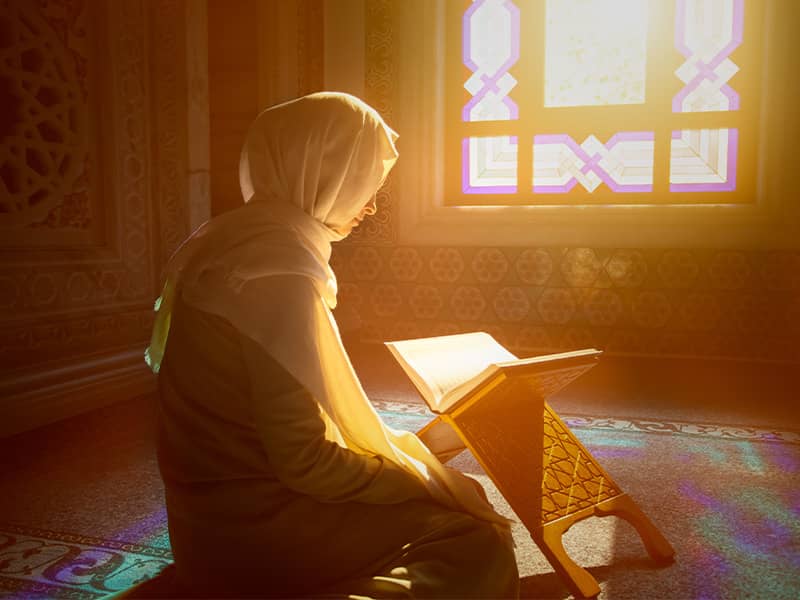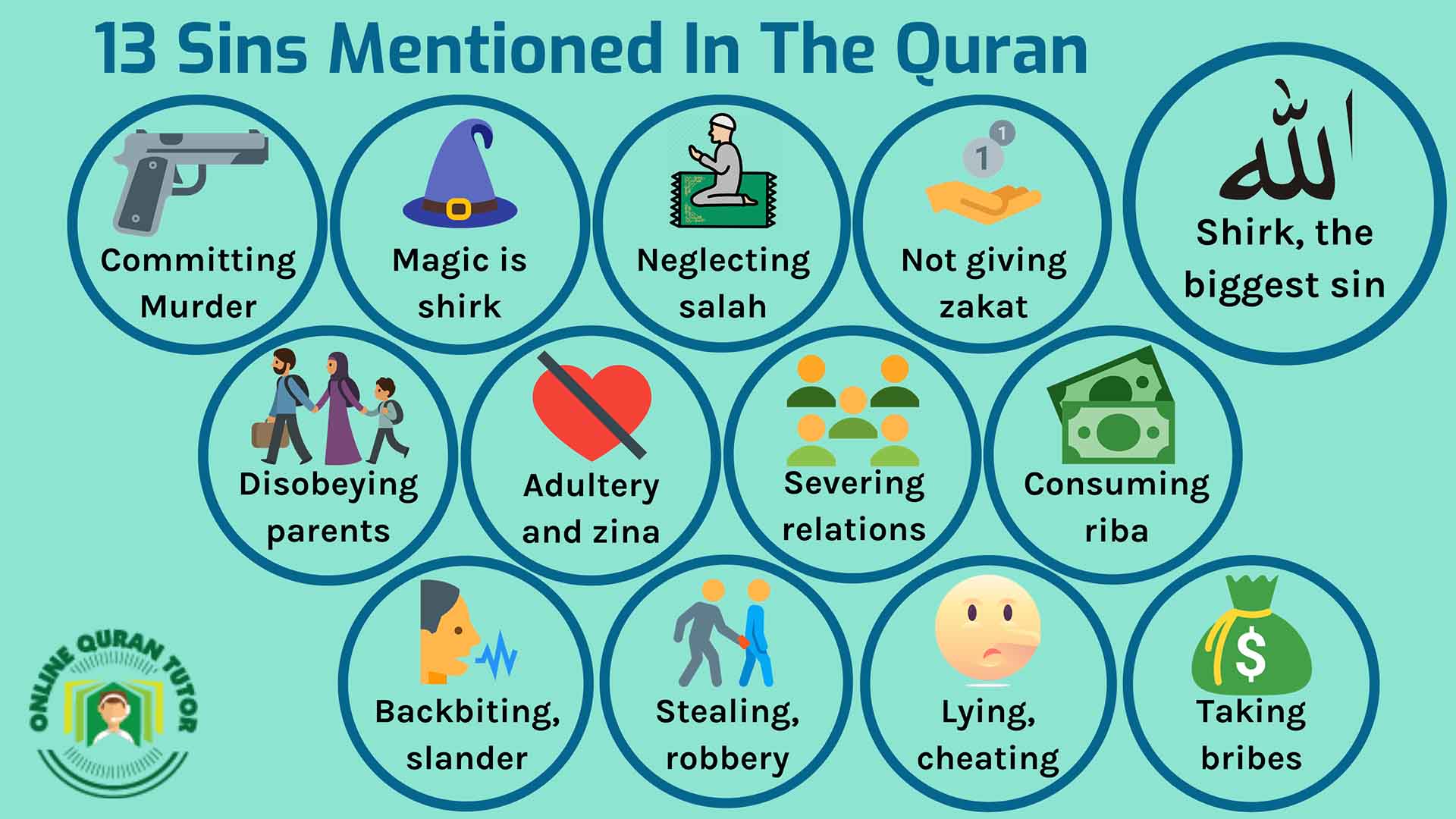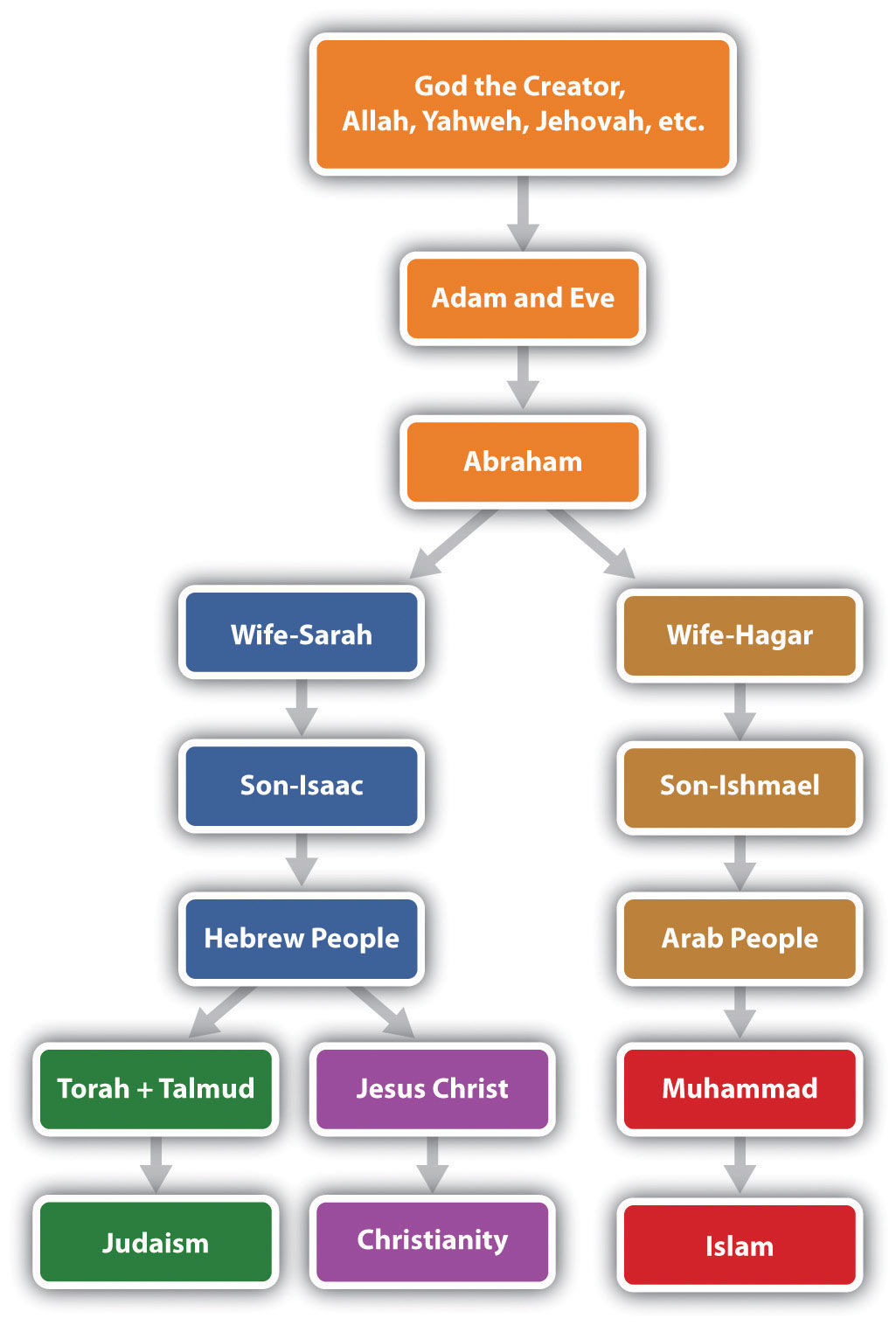
Books › Fiqh (Jurisprudence) › Major Sins In Islam
Some of these means are: making sincere repentance in accordance with the aforementioned conditions, performing ablution properly, going to the mosque frequently, prostration with humility, fasting Ramadan, performing night prayer, and avoiding major sins.

What Are the Major Sins According to Islam?
Definition: Major sins are defined as what is forbidden by Allah and His Messenger in the Qur'an and the Sunnah in addition to what is narrated on the authority of early Muslims. Allah, the Most high, promises whoever avoids the major sins to expiate his minor sins. Allah, the Almighty says,

10 Biggest Sins in Islam Part 2 YouTube
Ulama have explained that major sins are those sins for which there is a warning in the hadeeth or the Qur'aan. 2. You may refer to Mufti Muhammad Shafee Sahib's kitaab 'Gunah be lazzat' for a list of major and minor sins. You may view it by following this link: www.scribd.com/doc/32419961/Sins-That-Produce-Nothing-By-Sheikh-Mufti-Mu…

What Are the Three Major Sins in Islam?
The 7 major sins in Islam are: 1- shirk; 2- witchcraft; 3- killing a soul whom Allah has forbidden us to kill; 4- consuming orphans' wealth; 5- consuming riba; 6- fleeing from the battlefield; and 7- slandering chaste, innocent women. Answer Related Hadith about major sins in Islam 7 major sins in Islam 1. Shirk 2. Witchcraft 3. Killing 4.

13 Sins Mentioned In The Holy Quran Quran For kids
It is important to know the criterion in differentiating between major and minor sins. Al-Qurtubi wrote, " A major sin is any sin which Allah mentioned after it Hellfire, wrath, curse, or punishment. " [Tafseer Al-Qurtubi] Shaykh Ibn ʻUthaymeen wrote, " A major sin is that of which the consequence is a specific punishment.

The 7 Deadly Sins in Islam!!! By Wasim Ibn Abdul Ghani YouTube
The major sins are those acts which have been forbidden by Allah in the Qur'an and by His Messenger (peace and blessings be upon him) in the Sunnah, and which have been made clear as forbidden by the actions of the first righteous generation of Muslims, the Companions of the Prophet. Allah Almighty says,

The Book of Major Sins in Islam (PDF) Payhip
Major and minor sins Disobeying God is always a serious matter; however the scholars of Islam have divided sins into major and minor categories. Major sins are those sins that entail Allah's curse or incur His wrath or are tied with the threat of punishment of Hell, which includes the sin of worshipping something other than God, which is the most grievous act a human being can commit.

Major sins in islam Amsons
Below is the list of the 70 major sins in Islam. Ascribing Associates to Allah, The Most High (Shirk) Killing a Human Being. Sorcery. Not Performing the Prayer. Not Paying Zakat. Breaking One's Fast During Ramadan without an Excuse. Not Performing the Hajj When Able to do so. Showing Disrespect to One's Parents.

Sadiq_TamTe_🐦 on Twitter "70 MAJOR SINS IN ISLAM....👇 SUBHANALLAH 💔"
The Book Of Major Sins Muhammad ibn Sulaymân at-Tamimi, Ibraheem as-Selek (Translator) 4.22 64 ratings12 reviews Some of the major tribulations of human existence come about as a result of committing sins and spreading evil in the world. Islam recognizes that the human being is imperfect, fallible, and prone to committing sins.

[Hadeeth 1] 7 destructive sins Learn islam, Hadeeth, Sins
The seven major sins are: 1) Ascribing partners with Allah (shirk) 2) Practicing magic. 3) Murdering an innocent soul. 4) Usurping the wealth of the orphan. 5) Consuming interest (riba) 6) Fleeing from the battlefield (unnecessarily) 7) Slandering innocent chaste believing women. (Sahih Muslim, hadith: 258) And Allah Ta'ala Knows best,

The Book of Major Sins by Muhammad ibn Sulayman atTamimi
Mufti Waseem Khan Original Source Link This answer was collected from DarulUloomTT.net, which is operated under the supervision of Mufti Waseem Khan from Darul Uloom Trinidad and Tobago. Read answers with similar topics: Hajj haraam imaan Imam Abu Hanifa Kufr Q. How can I repent as I have committed major sins, kufr and shirk.

Imams help gay Muslims embrace new social identities BBC News
Answer. Praise be to Allah. Ibn al-Qayyim (may Allah have mercy on him) said: Sins may be divided into minor sins and major sins, according to the texts of the Qur'an and Sunnah, the consensus of the early generations, and how they are regarded by scholars. End quote. Once we know what major sins are, then we will know what minor sins are.

8.2 Muhammad and Islam World Regional Geography People, Places and Globalization
2. Sihr (Magic) The second destructive and major sin is to practice magic which is strictly prohibited in Islam. It is also known as Sihr, an Islamic term. It sets on everything the reason for which is hidden and everything that can be imagined by saying or comparing that takes place as hypocrisy.. A verse from the Holy Qur'an clearly states that the magician only deceives the eye of the.

44. Cursing Sins, Islam, Learn islam
Here's a list of the key sins of Islam which followers consider to be immoral. To believe that there is another God other than Allah. Allah is the one and only God. This means that Islamic is a monotheistic religion. To lose hope or faith in Allah and to believe that Allah would not save one on the day of Judgement.

Major Sins in Islam (Muhammad Iqbal Siddiqui) Based on the book "Kitaab alKaba'ir" by Muhammad
Haram vs. Makruh Tahriman. While the criteria of major/minor sins was dealt with by all four schools of jurisprudence, the distinction between unlawful (haram) and prohibitively disliked (makruh tahriman) is one specific to the Hanafis. According to the Hanafi school, a sin is unlawful (haram) if it is established as sinful by definitive texts.

Major and Minor Sins in Islam PDF Religious Belief And Doctrine Religious Behaviour And
t. e. Sin is an important concept in Islamic ethics that Muslims view as being anything that goes against the commands of God or breaching the laws and norms laid down by religion. [1] Islam teaches that sin is an act and not a state of being. It is believed that God weighs an individual's good deeds against their sins on the Day of Judgement.